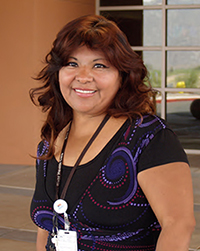 Why did you choose your specific health professional career?
Why did you choose your specific health professional career?
I wanted to take the business organization and revamp the processes to make them patient driven and still apply business principles. I have systems administration and regulatory compliance experience and wanted to use these tools to merge clinical perspectives with business savvy.
What experiences did you have to make sure this profession was right for you?
I have experience in business avenues that include: business systems administrator, regulatory background, and clinical administrative assistant. My clinical avenue experience includes positions such as: lab technician, pharmacy technician, medical assistant, inpatient registration, and the clinical administrator of a mentor program.
Describe any obstacles or barriers to success that you encountered along your health professional career path. How did you overcome them?
Academia is not simple. The academic portion involves a lot of hard work to get through, yet applying those principles I have learned is even more challenging. To overcome these challenges, I must retain my perspective when the going gets tough. I constantly remind myself to remember my tribe, my family, and the money that has been sacrificed for me.
What do you do in your current job?
I oversee the daily operations of our satellite health care centers for the Gila River Indian Community. My work is to ensure that all the clinics are fully functional, and that the native community is treated with dignity and respect.
What advice do you have for American Indian/Alaska Native students who are interested in health careers?
I would advise them to think with their heart and apply knowledge and common sense. Healthcare is a service industry, and although the population may not be educated in healthcare, they know “genuine” care.
What would you like to see for your tribe’s future?
I would like to see my people stop dying from diabetes. Although it is a prevalent disease and creates serious health concerns, it is a preventable disposition. IT CAN BE PREVENTED OR PROLONGED. Our future is to educate our tribal members about this disease. It is a war we can win. The strategic tactic is to know the disease and how it destroys vital body organs and how it can be counteracted with the implementation of prevention education, along with a uniformed approach in the treatment of diabetic patients by our providers.
Do you practice traditional medicine? If you do, then how does traditional medicine interact with conventional medicine?
I believe that traditional medicine is a way of life and spirituality that helps maintain our daily mental state of being. Conventional medicine treats a condition and is problem specific to one area of the body; whereas traditional medicine is all inclusive of the entire body, mind and spirit.

